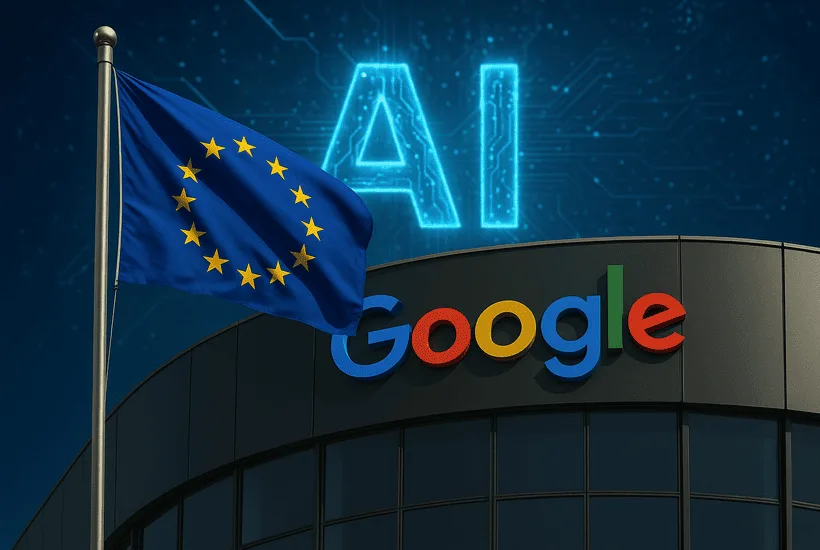- EU’s AI code of practice was released on July 10
- AI firms can voluntarily choose to comply with these guidelines in the EU
- Meta has refused to adhere to this code
Google has agreed to sign EU’s AI code of practice, the search engine giant announced on Wednesday, July 31. Published on July 10, these guidelines aim to establish the ground rules around the transparency, copyright, safety, and security around AI operations within the region and are slated to go live on August 2.
In an official statement, Kent Walker, the president of global affairs at Google and Alphabet noted that Europe’s economy could see a boost of up to eight percent annually by 2034 owing to AI developments.
“We will join several other companies, including U.S. model providers, in signing the European Union’s General Purpose AI Code of Practice. We do so with the hope that this Code, as applied, will promote European citizens’ and businesses’ access to secure, first-rate AI tools as they become available. Prompt and widespread deployment is important,” Walker said.
Newsletter
Get weekly updates on the newest crypto stories, case studies and tips right in your mailbox.
While Google did pledge compliance to this AI code, Walker said, concerns around its impact on the technology’s growth remains prevalent.
“We remain concerned that the AI Act and Code risk slowing Europe’s development and deployment of AI,” the official highlighted. He specifically pointed out that EU’s guidelines around the copyright law could result in slowed rate of approvals and requirements may expose trade secrets — damaging Europe’s position in competitiveness.
Earlier this month, Mark Zuckerberg-led Meta had also voiced similar concerns around EU’s AI rulebook, refusing to adhere to the guidelines. Joel Kaplan, the chief global affairs officer at Meta had called out the code for introducing a number of “legal uncertainties” for the developers of AI models.
“We have carefully reviewed the European Commission’s Code of Practice for general-purpose AI (GPAI) models and Meta won’t be signing it. Europe is heading down the wrong path on AI,” Kaplan said last week.
The EU has defined these guidelines as a voluntary tool developed by 13 independent experts reflecting the collective input of over 1,000 members of the AI industry. The code prohibits AI firms against training their models based on the articles, books, and news stories of publications and authors. Furthermore, it stipulates that AI firms must maintain frequently updated documentation on experimental features.
While signing to comply with these guidelines has been pitched as a voluntary decision for AI firms, signatories are bound to see certain benefits for following the advisories.
Now that Google has officially decided to follow the rules, it has put forward its plans to work with the EU AI Office to “ensure the Code is proportionate and responsive to the rapid and dynamic evolution of AI”.













